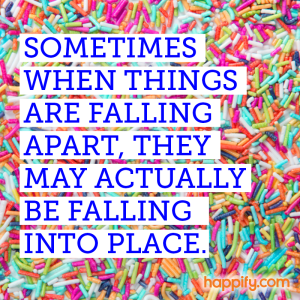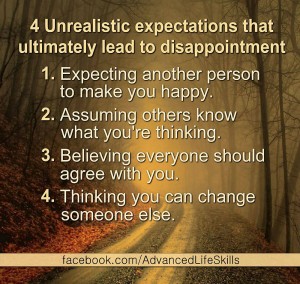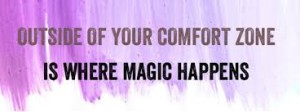Monthly Archives: July 2015
Shift Work
According to Stats Can in 2005 approximately 4.1 million Canadians worked shift work. As counsellors we know there are many side effects that can impact shift workers.
Shift work can impact your social life and your relationships. In How to Deal when you and your spouse are on Opposite Shifts they suggest communicating in other ways. Technology has made it a bit easier to communicate through text messaging and emails. Take a minute during lunch to stay in touch. It can be difficult to feel connected when you are passing each other in the hallway. Make the most of the time you do have together. Plan a date, see some friends, do something you have both been wanting to do. Make the time you do have count.
Sleep deprivation is another concern for shift workers and can have negative impacts on worker job performance, safety and quality of life. In the article 10 sleep tips for shift workers they suggest transitioning your sleep schedule over a three day period when you have a significant shift change. Sticking to water instead of caffeinated, sugary or alcoholic beverages can also help set the stage for better sleep.
The importance of diet for shift workers cannot be stressed enough. According to Eat Right Ontario, Nutrition for Shift Workers, the worker can experience digestion problems, sleep difficulties and changes in appetite and weight. Eating healthy and remembering snacks count too! Going to bed on an empty stomach can lead to poor sleep. If you are hungry eat something light before going to bed. They suggest healthy choices like whole grain cereals or whole grain toast with peanut butter. Drink lots of water while you’re working . Try infusing water with fruit, it will taste great and encourage you to drink more.
We have created a new Lidkea Stob Pinterest board, Shift Work. On this board we have shared sleep tips for shift workers, water infusion recipes, healthy eating ideas and other information about working shifts. We will continue to add to this board creating a resource that can easily be accessed and with a click of a mouse you can start your own Pinterest board to store the things that interest you.
Unrealistic Expectations
Unrealistic expectations can happen in so many ways, perhaps we look to others for self validation, make assumptions, expect change to be instant or maybe we assign our own belief system to others and are disappointed when they don’t act the way we think they should.
Expecting someone else to make you happy can take us down a road to disappointment. In counselling we stress the importance of self determination. This includes the right to our own happiness and accepting responsibility for our role in this. Planning happiness is like planning a vacation. We set our destination, we do the research, we think about what is important to us, we set a limit and we believe that we are going to have a good time. Approaching life in a similar way helps us to take control and focus on what truly matters to us.
Assuming others know what you’re thinking. I am almost certain that we have all fallen into this trap at some point. Answering “nothing” when asked “what is wrong?” Feeling angry because our colleague got the promotion that we didn’t express interest to our boss about. Expecting people to be mind readers, this is not only unrealistic it is being unfair to ourselves and to the people in our lives. Express yourself to others and you will find that people are more receptive to this approach.
Believing everyone should agree with you. Well there are days I think this is a fabulous idea and it would make my world so much easier! We are all different and a healthy relationship allows for differences and welcomes discussion. Sometimes by listening to someone’s point of view we realize there are other options. We may reassess our own ideas and develop a new belief. Leaving room for different opinions makes room for growth and that is a positive thing!
Thinking you can change someone else. This is something that often makes people very annoyed when they are the person that is expected to change. So the question is why do we expect this of others? We want them to stop smoking or be more thoughtful but they just don’t do what we want. This leads me back to expectation #1. In the Free Dictionary self determination means “Determination of one’s own fate or course of action without compulsion; free will.” Respecting others in our relationships means allowing them to make their own choices. We can support them if they decide to embark on change but we cannot make them do it. As humans we self determine.
In the article Toss Your Expectations Into the Ocean the author suggests letting your expectations go by tossing them into the ocean. They get carried away by the waves and then you can live your life without them. So give it a try and see what happens. It may take a little practice and as you find them creeping back into your life just toss them again and let them float away. You don’t need them anymore because you have made room in your life for more positive thoughts.
Stepping outside your Comfort Zone
As therapists we talk about this imaginary comfort zone a lot. We may use different phrases and words, perhaps we talk about resistance to change or pushing boundaries or maybe we just suggest doing things differently. Whatever the language we are talking about change and doing something in a way we haven’t done before to achieve a different result. This means for many of us that we have to step outside that invisible comfort zone.
The funny thing is that when we talk about this people describe feeling anxious about the mere idea. In an article titled How Stepping Outside Your Comfort Zone Can Help Reduce Anxiety the author challenges this idea with their own personal experiences with change. While challenging herself didn’t completely eliminate her anxiety she found that anxiety was not who she was. It opened the door to what was possible.
The “comfort zone” defined by Lifehacker as a “behavioral space where your activities and behaviors first a routine and pattern that minimizes stress and risk.” Of course this sounds great but it doesn’t leave much room for change, growth and new experiences. Huffington Post gives us 6 Reasons to Step Outside Your Comfort Zone and they are pretty compelling. They suggest that trying new things can make you more creative, help you perform at your peak and even help you age better!
So where can you start? In Lori Thayer’s article Step Out Of The Comfort Zone from Life Hack she gives ideas for small, medium and huge steps. While I wouldn’t recommend some of the huge steps they did make me smile. I mean go camping with bears?! Maybe start small like signing up for a computer class, saying hello to a new person every day or not reading your email every time you hear that incoming mail sound.
In How to Step Out of Your Comfort Zone: 3 Helpful Habits, writer Henrik Edberg suggests mixing it up a bit. He recommends eating something new or changing your daily route. If you aren’t quite ready to go it alone you could bring a friend along to the gym or that party you want to go to. Regardless of what the change is you are opening yourself to new experiences and it can be exciting and a bit scary but you will notice a difference!









